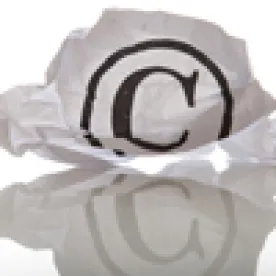Oracle Corporation v. SAP AG
The U.S. Court of Appeals for the Ninth Circuit has explained that a copyright owner is not required to show that it actually would have granted a license to the defendant before it can recover hypothetical damages based on a fair market licensing theory, notwithstanding that the evidence showed it would not have granted such a license. However, the hypothetical-license award cannot be based on speculation. Oracle Corporation v. SAP AG, Case No. 12-16944 (9th Cir., Aug. 29, 2014) ( Fletcher, J.).
Oracle sued SAP for copyright infringement based on activities of TomorrowNow, a company acquired by SAP. SAP admitted liability but disputed damages. Following the damages trial, the jury awarded Oracle $1.3 billion in damages based on a hypothetical-license theory of recovery, but the award was short-lived as the district court later found the amount to be “grossly excessive” and unsupported by evidence. The district court replaced the award with a remittitur of $272 million reflecting the $36 million in Oracle’s lost profits and $236 million in SAP’s infringer profits. Oracle appealed to the 9th Circuit.
Following Polar Bear, Wall Data and Jarvis, an award of hypothetical-license damages constitutes an acceptable form of “actual damages” recoverable under 17 U.S.C. § 504(b) provided the amount is within the range of the license’s reasonable market value, that is, what a willing copyright owner actually would have charged after negotiation, as opposed to what the owner would have charged if “unconstrained by reality.” Based on those principles, the 9th Circuit refused to revive the $1.3 billion award to Oracle finding it unduly speculative.
Oracle argued that the $1.3 billion verdict was supported by the enormous about of illegal downloads of Oracle software (over five terabytes of infringing data, which “would encircle the globe nine times if printed out on double-sided paper laid end-to-end”); the amount Oracle paid to acquire the IP, which included the copyrighted data at issue; Oracle’s anticipated loss; and SAP’s anticipated gain. The 9th Circuit disagreed, stating that the quantity of infringing data downloaded reveals “very little about its value to SAP” and that there was no evidence apportioning the revenue obtained from the infringing activity from the $900 million in SAP’s “hoped” for revenue. Indeed, the Court observed that if SAP truly anticipated it could make $1.3 billion based on its acquisition of TomorrowNow, then the $10 million acquisition price for TomorrowNow was “strikingly low.” The 9th Circuit also doubted Oracle’s expert’s conclusion that Oracle stood to lose more than $1.3 billion since that estimate was based on the assumption that Oracle would lose the 1,375 customers that SAP, in presentation slide entitled, “Assumptions,” stated it hoped to gain—not a particularly reliable source of objective evidence, according to the 9th Circuit.
Finally, the 9th Circuit recalculated the remittitur to $356.7 million, concluding that the district court erroneously adopted a $36 million lost profits number instead of the $120.7 million figure it should have used when it calculated the remittitur.
Practice Note: Oracle must now choose between accepting $356.7 million remittitur award or seeking a new trial on damages. If it chooses a new trial, Oracle is limited to claiming damages based only on lost-profits and infringer’s profits theories. As the 9th Circuit noted, having no history of granting fair market licenses, Oracle could have, but did not, proffer evidence of “benchmark” licenses in the industry to approximate the value of a hypothetical fair market license, but did not.




 />i
/>i

